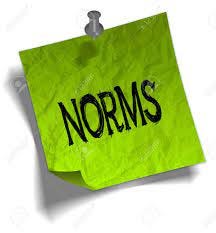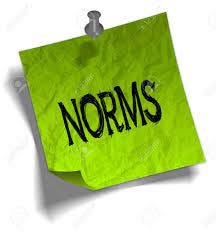Norm(s)!!!
If being a rogue prosecutor means going outside prosecutorial norms, we must first know the prosecutorial norms.
Justice Briefs is a weekly newsletter devoted to federal criminal prosecution. The federal government’s evolution over the last 230 years has given federal prosecutors significant discretion. Few realize it exists and even fewer know how it is used. Justice Briefs aims to make federal prosecutions and prosecutors more accessible to the general public. Please help me in this endeavor by subscribing and sharing with others.
Justice in Brief
In the Southern District of Ohio, a man entered a guilty plea for creating and distributing videos depicting monkeys being tortured physically and sexually. The man paid people in Indonesia to create the videos.
In the District of Maryland, a woman entered a guilty plea for conspiring with others to attack and destroy multiple electrical substations in the Baltimore area. They intended this as a means to accelerate the adoption of their white nationalist agenda.
In the Southern District of New York, two brothers were charged with stealing $25 million worth of cryptocurrency from the Ethereum blockchain. The theft took 12 seconds to complete and has never been prosecuted before.
Norms of Prosecution
With the US Supreme Court’s apparent distrust of federal prosecutors to not abuse their discretion, attention focuses on whether this concern is warranted. Has there been an epidemic of rogue prosecutors who work outside of Justice Department norms? Answering this question requires familiarity and understanding of federal prosecutorial norms. While there are many norms, some more significant than others, we will focus on four: (1) acting independently from partisan politics, (2) reviewing the case before pursuing the case, (3) bringing only strong cases, and (4) bringing only “federal” cases.
Independence from partisan politics
When asking people, especially today, to provide the most important federal prosecutorial norm, most would say that federal prosecutors must act independently from partisan politics. This is an essential norm to uphold the rule of law. The law cannot be enforced against one group differently from another. It cannot be made to serve one particular candidate or one particular party’s power interests. When politics improperly interferes with prosecutorial charging decisions, law becomes subservient to the political moment. Law becomes another tool in political wars. In recent years, both sides in the political wars have accused the other of politicizing the Justice Department for their own benefit.
While the need for this norm is clear, the boundaries between politics and prosecutors are muddled. Most would agree that prosecutors should not target political opponents for prosecution. Nor should they shield their political allies from prosecution. Identifying this is not always clear, however. Does the prosecution of a former president by former president’s successor from the opposing party automatically mean that the prosecution is politically motivated? Does adding a special counsel mean it is no longer politically motivated? There is not consensus on this.
At the same time, there are times when politics should and do inform prosecutorial choices. Suppose a presidential candidate identifies gun violence as a serious national issue and makes a pledge to prosecute more gun cases at the federal level. The candidate wins election and appoints United States Attorneys who support the new president’s agenda. Within a year, the number of federal gun prosecutions increases significantly. Is this an improper use of politics in prosecutorial decision-making? Most would say no. This tells us the norm of political independence falls somewhere between these two scenarios. Where is falls can be debated.
Review then pursue
When it comes to charging criminal cases, another norm federal prosecutors adhere to is that they review the case first and then pursue it. While some state prosecutors do this, they do not spend near as much time as federal prosecutors do. Each case is carefully scrutinized. Federal criminal cases, for the most part, tend to be more complex than state cases. There are more facts and more legal questions. They can also take more time. State prosecutors work under heavy caseloads. Federal prosecutors have many fewer cases.
Once they thoroughly review the case and it fulfills the next two norms, will a federal prosecutor pursue it. The reason for the review is because dismissing a federal criminal case, once filed, requires high-level approvals. Absent extraordinary circumstances, it does not happen. Therefore, once the case is reviewed and the decision is made to file charges, the federal government pursues it.
Violating this norm involves filing a case without careful review. Doing this runs a substantial risk. Suppose the case falls apart? Suppose there is a defense that was not carefully considered? Losing a case because it was not carefully reviewed will not help anyone’s career prospects.
Reduce—if not eliminate—uncertainty
Nearly forty years ago Celesta Albonetti published a ground-breaking article where she revealed that prosecutors, when deciding which cases to pursue, seek to reduce uncertainty. She found that prosecutors pay most attention to the evidence presented by the case. If the evidence is strong, then the prosecutor will proceed because there is a high degree of certainty that the defendant will enter a guilty plea or be convicted at trial.
Federal prosecutors do this by participating in the investigation itself. Many, if not most, federal criminal investigations require some sort of legal process to obtain evidence. These processes could include a search warrant, grand jury subpoenas, or wiretaps. Prosecutors review these requests and ensure the facts comply with legal requirements. They also review the evidence to determine if it is sufficient for prosecution. If they do not think the evidence sufficient, they can send it back for more evidence collection. This process continues until the prosecutor is certain the case will end with a conviction.
Violating this norm is much like the review norm. It runs the risk of losing a case, not because a jury is a roll of the dice, but because the prosecutor was not thorough.
Making a federal case out of it
Federal prosecutors only handle “federal” cases. What exactly is a “federal” case is unclear. During my first year as a federal prosecutor, I spent considerable time reviewing a case that implicated national security interests. As a I investigated further, a different narrative emerged that indicated this was actually a workplace dispute. Despite having good evidence that the suspect committed the crime, I decided not to prosecute the case. I did not think it was the office’s job to prosecute something that was a local matter. When I made that decision, my supervisor informed me that it was a “good federal declination,” meaning that it was not a federal case.
The Justice Department’s Justice Manual in section 9-27.220 states that otherwise sufficient cases shall be declined if (1) there is not a substantial federal interest, (2) another jurisdiction can effectively prosecute, or (3) there are suitable alternatives to prosecution. When determining the federal interest, two important factors are the Department’s priorities and the seriousness of the offense.
Though enshrined in the Justice Department’s manual, what makes a federal case can different from prosecutor to prosecutor. As a federal prosecutor, I likely had a wider definition of what made a case federal than others. I enjoyed working on obscure criminal laws like the Lacey Act. Most others in the office did not share this interest and might decline such cases immediately, perhaps finding the offenses not sufficiently serious. That is what constitutes the norm: how the trial-level prosecutors perceive the case.
These four norms tell us something about rogue prosecutors. While violating any one particular norm may not make a prosecutor “rogue,” violating all four would be a clear indicator that a prosecutor has gone rogue. That person is acting without any regard for how federal prosecutors should make their decisions.
To see what this looks like, let’s take Jack Smith’s prosecution of former Virginia governor Bob McDonnell. We can say that his prosecution pushed the bounds on the law’s requirements on bribery. However, it is clear that political partisanship played no role in the case. Smith did not receive any political benefit for doing so. Nor was he a political appointee, acting at the behest of political leaders. The case caused no harm to McDonnell in the immediate term as he could not run for re-election. He also carefully considered the allegations, did not rush to judgment, and had the necessary approvals before proceeding. He also had strong evidence. There was no dispute about what McDonnell did. There was only the legal question of whether his conduct constituted bribery under federal law. The case also presented a serious matter: the potential acceptance of a bribe by Virginia’s highest ranking executive official.
Suppose, however, on the same facts, Smith targeted McDonnell because he was a rising star in Republican politics. Instead of carefully scrutinizing the case and locating strong witnesses, Smith jumped at the opportunity to prosecute a Republican governor of a potential swing state. He did not realize facts were questionable or the potential legal problem until after filing the criminal charges. Suppose he filed the charges on his own, without obtaining the appropriate approvals. Only after the fact did he realize that the case was not sustainable. Further, the prosecution of a state official violated the Justice Department’s priorities. It had turned to violent crime and sought to avoid prosecuting state officials for federal crimes. Violating these norms, or some combination of them, would lead to a rogue prosecution and be rightly condemned.
Therefore, if we are to say that rogue prosecutors are those who violate federal prosecutorial norms, then it must be the result of violating multiple norms, not just one. Those norms must be clearly violated. Is this likely to happen? No. However, as next week’s issue will show, it has happened.
I hope you enjoyed this issue and that it made you stop and think. I would love to hear any comments, questions, concerns, or criticisms that you have. Leave a comment or send a message! Also, if you enjoyed this or if it challenged your thinking, please subscribe and share with others!



